15+ Brilliant Substitutes for Coconut Sugar
When you buy through our links, The Breslin may earn an affiliate commission. Learn more
Coconut sugar substitutes become incredibly important when you discover that coconut sugar is missing from your pantry. The worst thing is that your desired recipe is urgently calling for this delectable ingredient, and you have no time to reach the store.
As a true fan of coconut sugar, I deeply understand how frustrating you are in those above situations. Compared to other conventional sweeteners that are constantly used in meals and drinks, coconut sugar gains high popularity, thanks to its health benefits.
Yet, do not be concerned if you can’t locate any trace of it in your kitchen! There are a plethora of coconut sugar alternatives that taste just as good in your recipes.
Substituting coconut sugar is a breeze with my following comprehensive list of the finest replacements for you to select. This article will provide you with specifics of each alternative and mix instruction with the optimum ratio.
Follow my lead, and may my list assist you in selecting the best substitution for your next meal!
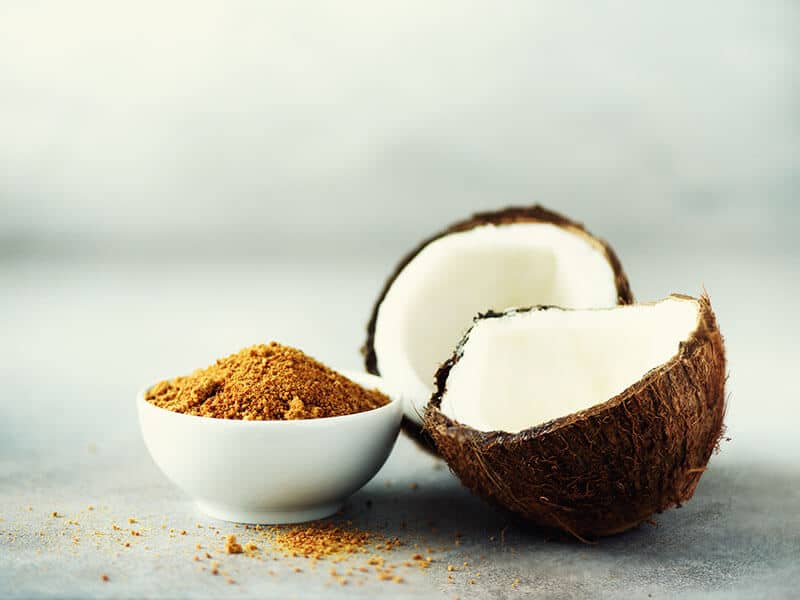
Basic Introduction About Coconut Sugar
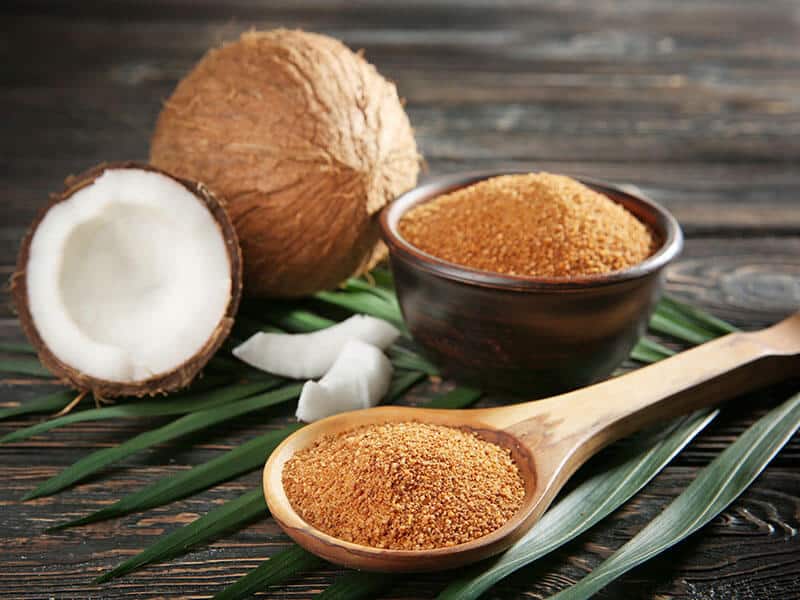
Nowadays, people are attempting to consume healthier foods. When it comes to sugar, coconut sugar is one of those healthy alternatives that they rely on. It is a natural sweetener derived from coconut palm sap, appearing commonly in a variety of Asian cuisines.
Coconut sugar has many names, such as coconut palm sugar, coco sap sugar, or coconut crystals. Yet, do not confuse coconut sugar with palm sugar, as they are two unique kinds derived from two distinct plants.
Making coconut sugar is surprisingly straightforward with a two-step procedure that involves extracting sap from coconut blossoms and drying the liquid. Then, this dehydrated state is broken down into the coconut sugar granules that you find at stores.
Is Coconut Sugar Good For Your Health?
The secret to making this raw sugar a healthy option for your diet is its low glycemic index (GI). While regular table sugar has a GI of 58, the average GI of coconut sugar only ranges around 35 – 54 (1) . Any ingredient with a GI lower than 55 is low and good for health.
Coconut sugar achieves such a low GI, thanks to its content of inulin fiber. This component helps delay the absorption of glucose.
On the other hand, coconut sugar also retains some of the nutrients present in the coconut palm. It includes calcium, iron, zinc, and potassium, among other minerals and vitamins (2) . However, despite being a healthy alternative to conventional table sugar, it is still very caloric.
Coconut Sugar Vs. Table Sugar
To better understand how healthy coconut sugar is, it is best to look at the nutritional comparison in the table below.
At first look, coconut sugar and table sugar have quite comparable nutritional compositions. Every 100 grams of coconut sugar has 375 kCal, which is pretty similar to 387 kCal of table sugar. Plus, both types have 100 grams of carbohydrates.
Therefore, if you are trying to cut down on your calories or carb consumption, coconut sugar may not be the best option.
However, these figures conceal the fact that coconut sugar has a much lower glycemic index than table sugar. Also, this natural sugar has lower sugar content, leaving wider room for minerals and vitamins. So, rest assured that coconut sugar is much more nutritious.
The lesson here is that although coconut sugar is unlikely to be your friend if you’re trying to lose weight, it is still a healthier option than refined white sugar due to its less processed nature.
How To Replace Coconut Sugar With My Brilliant Alternatives?
It is always handy to have a table summarizing all the core information of the post. That is why I prepare the following table to list out the optimal ratio when you want to substitute these replacements for coconut sugar.
| Substitutes | Ratios (Coconut Sugar/Substitutes) |
| Light Brown Sugar | 1 teaspoon of coconut sugar = 2/3 teaspoons of light brown sugar |
| Sucanat | 1 teaspoon of coconut sugar = 1 teaspoon of Sucanat |
| Raw Honey | 1 teaspoon of coconut sugar = 1/4 teaspoon of raw honey |
| Agave Syrup | 1 teaspoon of coconut sugar = 1/4 teaspoon of agave syrup |
| Yacon Syrup | 1 teaspoon of coconut sugar = 2 teaspoons of yacon syrup |
| Maple Syrup | 1 teaspoon of coconut sugar = 1/4 teaspoon of maple syrup |
| Maple Sugar | 1 teaspoon of coconut sugar = 1 teaspoon of maple sugar |
| Date Sugar | 2 teaspoons of coconut sugar = 1 teaspoon of date sugar |
| Demerara Sugar And Turbinado Sugar | 1 teaspoon of coconut sugar = 1 teaspoon of demerara sugar and turbinado sugar |
| Piloncillo (Panela) | 1 teaspoon of coconut sugar = 1 teaspoon of piloncillo |
| Stevia | 1 teaspoon of coconut sugar = 1/2 teaspoon of stevia |
| Monk Fruit Sweetener | 1 teaspoon of coconut sugar = 1 teaspoon of monk fruit sweetener |
| Erythritol | 1 teaspoon of coconut sugar = 1 teaspoon of erythritol |
| Tagatose | 1 teaspoon of coconut sugar = 1 teaspoon of tagatose |
| Xylitol | 1 teaspoon of coconut sugar = 2/3 teaspoon of xylitol |
| Molasses | 1 teaspoon of coconut sugar = 1/2 teaspoon of molasses |
Comprehensive List Of Coconut Sugar Alternatives
Your journey of finding the best coconut sugar alternatives begins here. You are about to go through brilliant replacements to save your dishes when coconut sugar is suddenly unavailable.
1. Light Brown Sugar
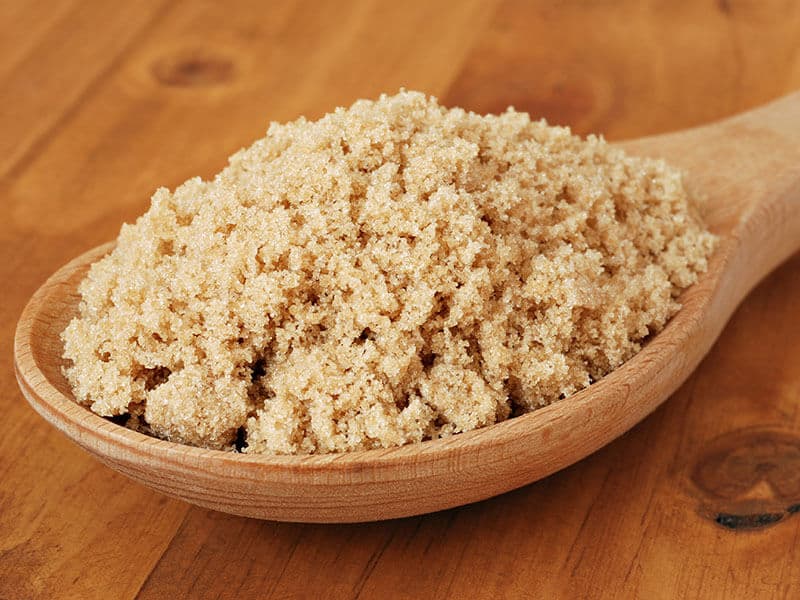
Of all options suggested in this post, light brown sugar is the finest replacement for coconut sugar in terms of color, taste, and consistency. Plus, it is very inexpensive, readily available, and chances are you already have some on hand.
In essence, brown sugar is just refined white sugar with molasses added. This component imparts its unique taste and brown hue to the ingredient, providing a robust flavor that is nearly coffee-like or caramel-like.
The level of molasses determines your brown sugar to be light or dark. When replacing coconut sugar, it is better to use light brown sugar, as greater molasses content can alter your dish’s flavor.
While coconut sugar has a nutritional edge over light brown sugar in that it includes inulin, both sugars are nearly similar. The ideal practice is to substitute 2 teaspoons of light brown sugar for every 3 teaspoons of coconut sugar required by your recipe.
Brown sugar is basically white sugar with high molasses content. You can see this video to know more:
2. Sucanat
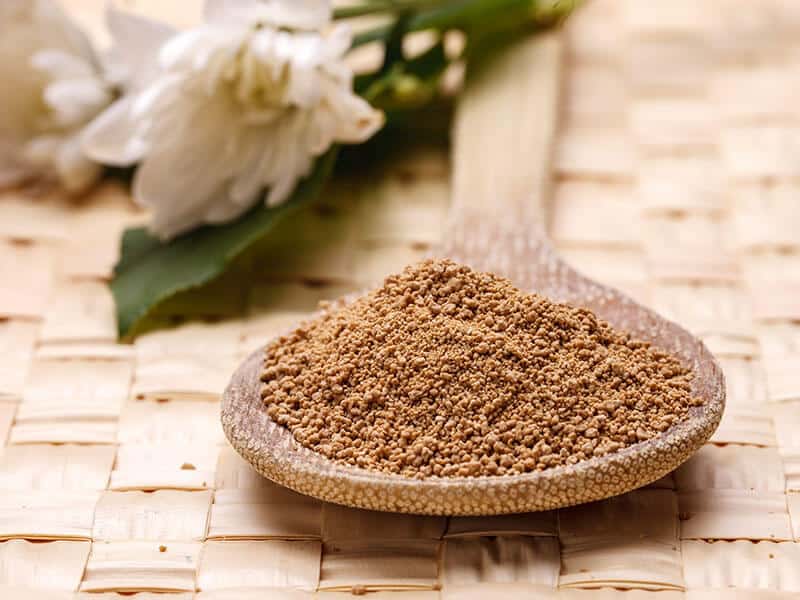
If you are searching for a natural alternative to coconut sugar that is healthier than brown sugar, try Sucanat! It contains natural molasses, low levels of sucrose, and high content of potassium, calcium, iron, and vitamins.
Sucanat is unprocessed cane sugar produced by extracting the juice from the plant, boiling and dehydrating it into granular forms. Unlike table sugar which loses all molasses content in the extracting process, Sucanat maintains its natural molasses and dark color after processing.
Sucanat shares the same structure with coconut sugar, as both types have big and light golden crystals. However, this tough structure prevents Sucanat from dissolving as rapidly as fine sugars. So, if you need to dissolve this raw sugar in a recipe, consider using a spice grinder.
The natural molasses content in Sucanat imparts a faint caramel flavor to your taste buds. Compared with coconut sugar, Sucanat has an equivalent level of sweetness. Thus, you can confidently use the 1:1 ratio when replacing Sucanat for coconut sugar.
3. Raw Honey
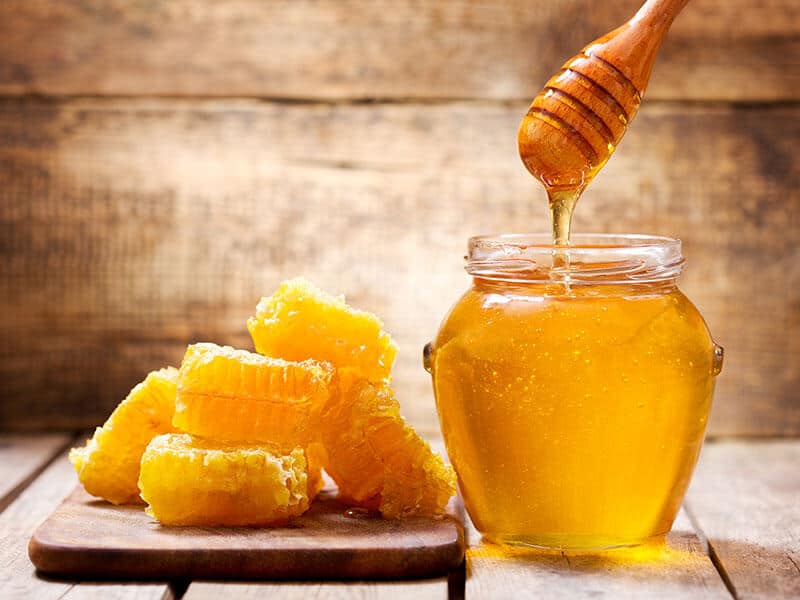
Raw honey is a sweet syrup stored in honeycombs, which humans extract for gastronomic and health advantages. It acts as a natural sweetener in various cuisines and works great as a coconut sugar substitute.
Raw honey includes beeswax, dead bees, and bee pollen, which must be removed from the honey syrup before using. Since raw honey is all-natural, it is an excellent source of antioxidants, anti-inflammatory, and antibacterial agents, reducing the risk of chronic illnesses.
When your recipe demands a liquid sweetener that does not need excessive heat, you can utilize raw honey. The low-heat feature guarantees that you will not lose nutrients during the cooking process.
Despite being a healthy alternative, it should be used sparingly. Bear in mind that raw honey is a liquid as opposed to the granular form of coconut sugar. Thus, only use 1 teaspoon of raw honey for every 4 cups of coconut sugar. This ratio assists in maintaining the dish’s balance.
4. Agave Syrup
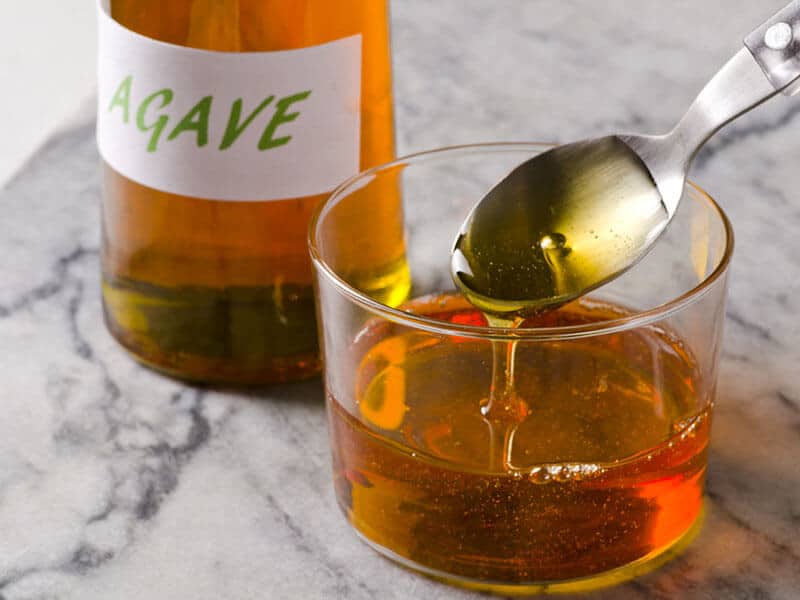
Also known as maguey syrup, agave syrup is extracted from blue agave plants and treated with enzymes. Agave syrup has a GI of 30, lower than that of coconut sugar. Thus, you are less likely to experience a rise in blood sugar when eating this syrup.
Yet, it has a significant amount of fructose, which may be harmful to your health if eaten in excessive quantities. The high level of fructose makes agave syrup much sweeter than sugar and has a more honey-like flavor.
Hence, like other liquid coconut sugar substitutes, 1/4 teaspoon of agave syrup for every 1 teaspoon of coconut sugar is recommended. While the syrup may be useful as a replacement for coconut sugar, it is the last choice I would use in any recipe.
5. Yacon Syrup
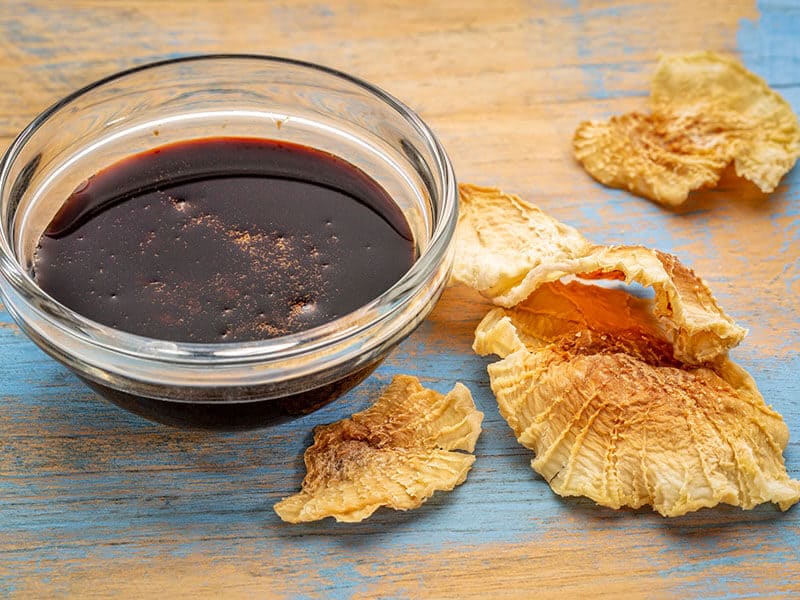
If agave syrup is extracted from agave plants, yacon syrup is made from yacon plants – a root vegetable native to South America that resembles a yam. Although it is less well-known than coconut sugar, yacon syrup is a hidden treasure whose popularity is on the rise.
You might compare this dark, thick syrup’s flavor to that of caramel. Yet, some people are claiming that it tastes just like apples, raisins, and molasses. It is difficult to describe its aroma perfectly, but yacon syrup is definitely less sweet than table sugar.
Also, this coconut sugar alternative earns the “next big thing” title from nutritionists and dietitians, thanks to its incredible health advantages. It has an extremely low GI, and calories yet can make you feel fuller for longer periods, thanks to its digestible carbohydrates.
Despite having approximately one-third of the calories found in regular sugar types, you should certainly consume it in moderation since excessive use may result in flatulence and other digestive problems.
Serve yacon syrup as a replacement for coconut sugar over pancakes and waffles or sweet sauces. Employing yacon syrup in smoothies and yogurt is also a wise decision to help reduce calories and lower the GI of your meal.
To achieve the best replacement result, follow the 1:2 ratio, meaning that every teaspoon of coconut sugar equals 2 teaspoons of yacon syrup.
Despite having many health benefits, yacon syrup is not keto-friendly. You can see this video to know more:
6. Maple Syrup
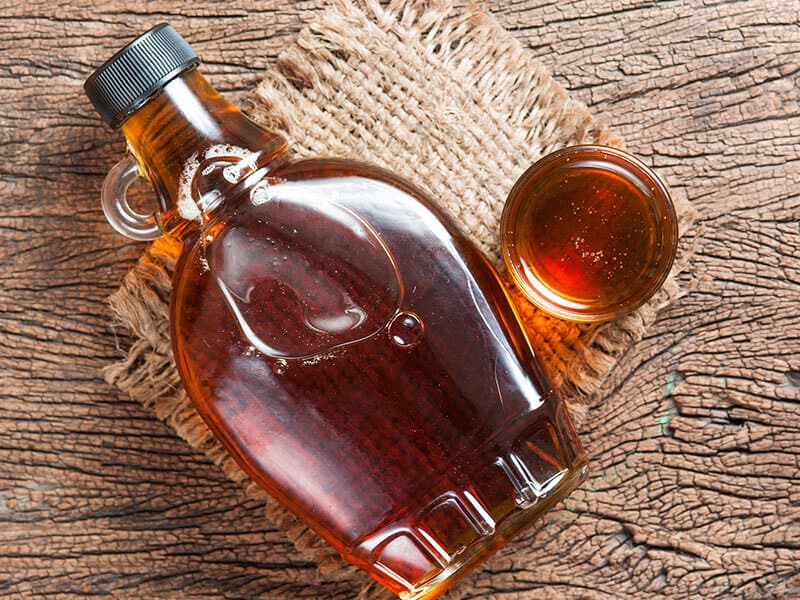
As with raw honey, maple syrup is a convenient and fast replacement for coconut sugar! Of course, it imparts a more maple flavor to your meals. However, its burnt caramel sweetness and pleasant fragrance work well in rendering the closest match to coconut sugar’s taste profile.
Extracted from maple tree sap, this syrup is then heated until it achieves enough consistency, at which point it is bottled and sold for public consumption. However, commercially branded items will include various additives. Thus, if possible, use pure maple syrup in place of coconut sugar.
This molasses substitute is a good source of magnesium, calcium, zinc, and potassium, making it a nutrient-dense option essential for your body and also a brilliant choice to fulfill coconut sugar’s job in various recipes.
The optimal ratio for replacing coconut sugar is 1:4, meaning that every cup of coconut sugar is equivalent to only 1/4 cup of maple syrup. This small ratio is reasonable and similar to other liquid substitutions, guaranteeing no apparent changes in your dishes.
Here is another good news for all vegans out there! If you love to render coconut sugar’s taste to your dishes but cannot consume raw honey, pure maple syrup is an excellent option to consider.
7. Maple Sugar
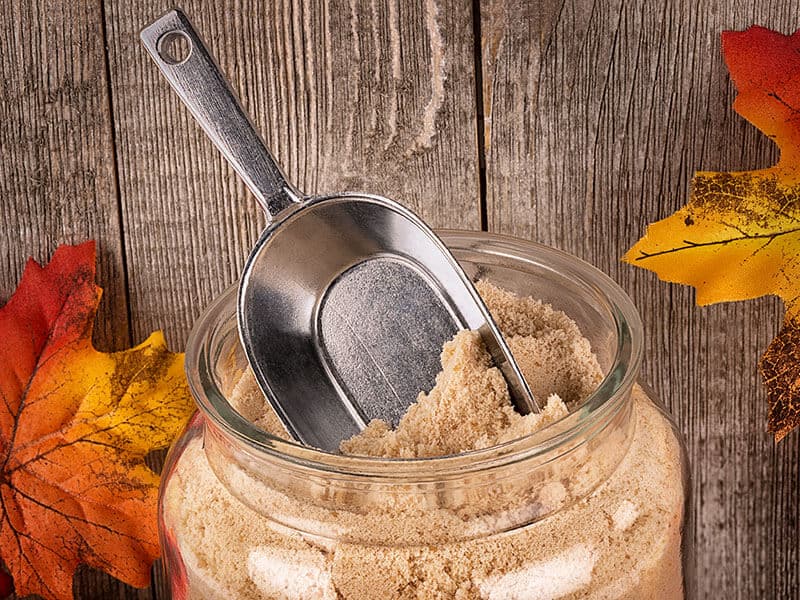
Unlike maple syrup which is in the liquid state, maple sugar refers to dried maple sap having been reduced to granules. This natural sweetener shares a similar coarse texture to coconut sugar, but it has a stronger sweet maple flavor.
While maple sugar retains a wonderful taste similar to butter, caramel, and vanilla, its caramel aroma is so light when compared with coconut sugar. Yet, since the sugar is in granular form, you can safely go for the 1:1 ratio when replacing coconut sugar.
While maple sugar is one of the more expensive sugar alternatives, it is really wonderful. It works fantastic in homemade granola, fruit compote, and coffee. As long as you enjoy the maple flavor, you can apply this sweetener to various baked goods like brownies and cakes.
8. Date Sugar
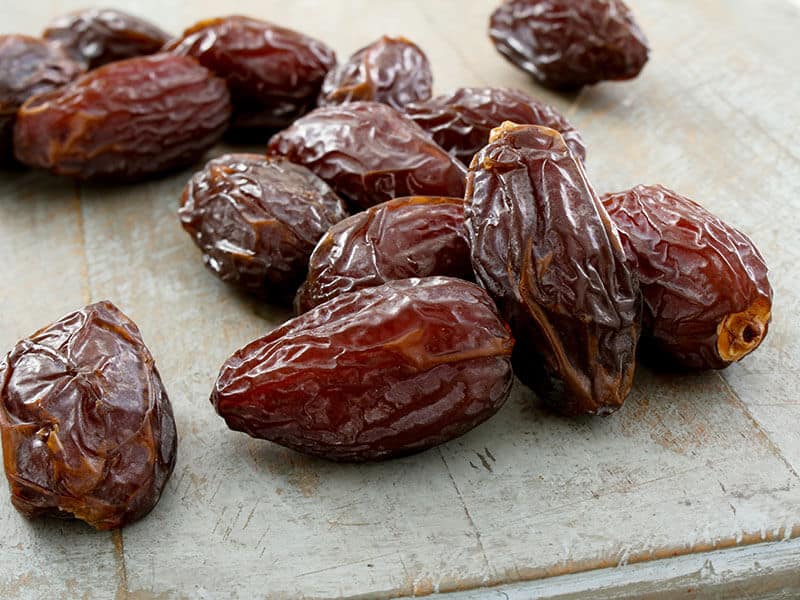
Obtained from date plants, a member of the palm family, date sugar bears a moderate and sweet taste, ideal for replacing coconut sugar in every dish. Technically, this delicious sugar is in powder form rather than crystallized particles like refined sugar you normally use.
You can produce this powdered sugar right at home with a few simple steps from dried dates that have been finely crushed by a food processor. Thus, this sweetener is difficult to dissolve in liquids. Thus, be cautious when adding it to beverages and drinks.
Date sugar is high in fiber and minerals, providing excellent nutritional advantages, such as improving circulation and keeping you fuller for longer periods. However, bear in mind that date sugar has a higher GI than coconut sugar.
You can replace 2 teaspoons of coconut sugar with 1 teaspoon of date sugar. The ingredient pairs nicely with yogurt, crisps, and crumbles, and even sweetens salad dressings beautifully. You can get date sugar in supermarkets and natural food shops easily.
You can easily make date sugar at home from just a single ingredient.
9. Demerara Sugar And Turbinado Sugar
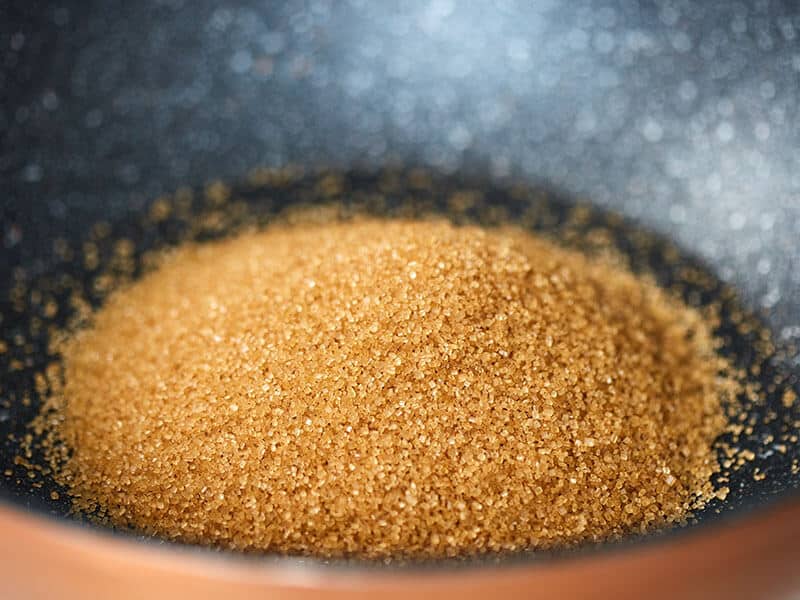
These two options are both slightly refined cane sugars with little difference so that you can combine them in lieu of coconut sugar. Both replacements share the molasses-like flavor with a hint of caramel taste, just like what coconut sugar offers to your dishes.
You might have known this sugar mixture under a more familiar name, “raw sugar”. Demerara is lighter in color and milder in flavor than turbinado. Thus, tossing them together generates a more balanced taste profile.
This mixture provides an identical sweetness level to coconut sugar. Therefore, you can use the same amount in a recipe that calls for coconut sugar. Thanks to their crisp textures, people prefer utilizing this sugar pair to decorate baked products such as cakes.
However, since demerara and turbinado have a similar sucrose content and calories to table sugar, you should consume the mixture moderately. Too high intake of such a sugar pair will result in a rise in blood sugar levels, causing chronic illnesses such as type 2 diabetes.
Demerara has a similar sucrose content to white sugar, and both have the same number of calories. This implies that excessive intake of this sugar may result in a rise in blood sugar levels, resulting in chronic illnesses such as type 2 diabetes.
10. Piloncillo (Panela)
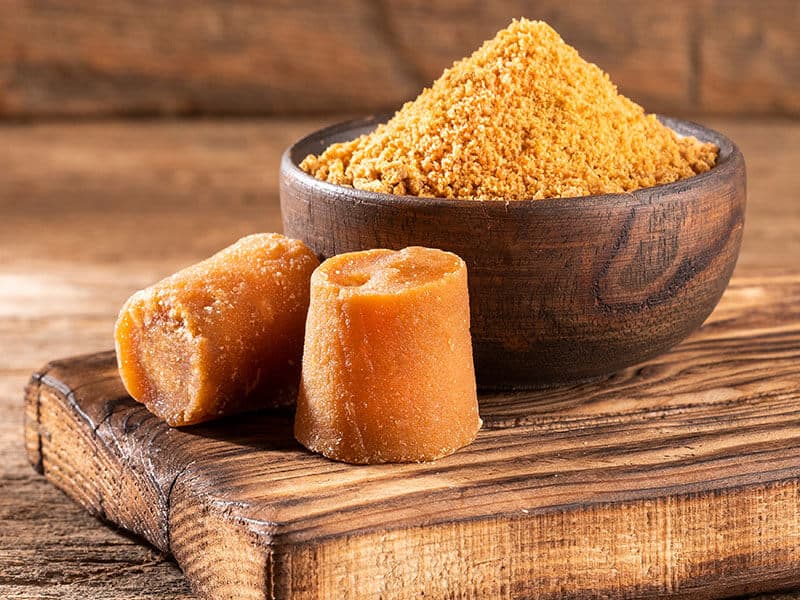
Piloncillo, or panela, is a staple component in Mexican cuisine. Produced from raw cane sugar, it bears a golden brown appearance, caramel flavor with hints of earthiness, which is perfect for replacing coconut sugar in various dishes and beverages, particularly Mexican recipes.
While piloncillo has a molasses-like flavor, it contains no molasses at all. There are two subtypes of piloncillo: Blanco and Oscura. While Blanco type is softer and more delicate in taste, the Oscura version is darker and more molasses-like in flavor.
If you seek a coconut replacement that is low in calories and high in minerals and vitamins, this Mexican sweetener is an excellent choice. You can substitute 1 teaspoon of piloncillo for every teaspoon of coconut sugar.
11. Stevia
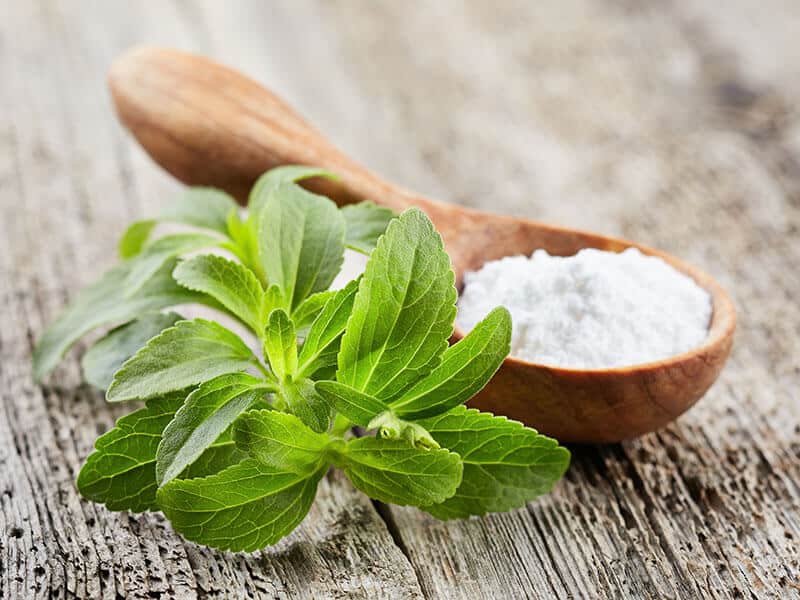
Stevia is another wonderful coconut sugar replacement made from the leaves of stevia plants, a member of the Asteraceae family. This sugar-free sweetener is available in both powdered and liquid form, as well as in packets, giving you more options in substituting coconut sugar.
Unlike other alternatives, this plant-based sweetener has no calories and is much sweeter than refined sugar. Yet, it has a negligible impact on your blood sugar thanks to the stevioside contained in the stevia plant, guaranteeing a healthy meal for your stomach.
You can use 1/2 teaspoon of stevia in place of 1 teaspoon of coconut sugar. While stevia is a no-calorie ingredient, professionals recommend using it in moderation, just like other sweeteners. Excessive use of stevia will be detrimental to blood pressure levels in the long run.
Enjoy this simple presentation to learn more about stevia.
12. Monk Fruit Sweetener
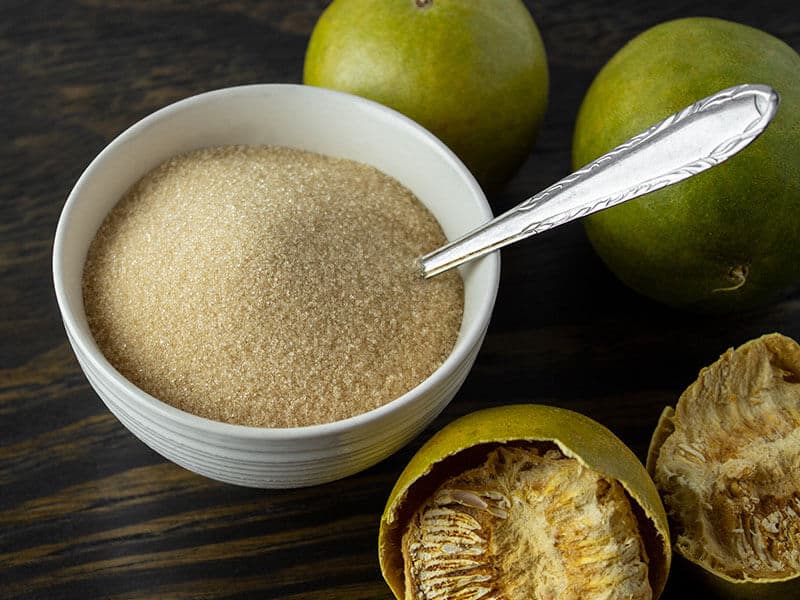
Monk fruit sweetener is a natural sugar extracted from crushed monk fruit that has been dried and ground into powder. This Moorside is another representative of the “zero calories” sweetener family with high sweetness intensity, owing to the rich content of Mogrosides.
The nice thing about monk fruit sweetener is that all of its sweetness comes from the above antioxidants only and not from fructose or glucose. As a result, it is completely natural and has almost no effect on your blood sugar levels.
Due to its intense sweetness, I advise using less than 1 teaspoon of monk fruit sweetener in lieu of every teaspoon of coconut sugar. It is better to begin with modest amounts and then increase as required. This practice will keep your dish from being overly sweet.
Monk fruit sweetener is so versatile that you can utilize it in a variety of applications that call for coconut sugar, including sweets, drinks, smoothies, and sauces.
13. Erythritol
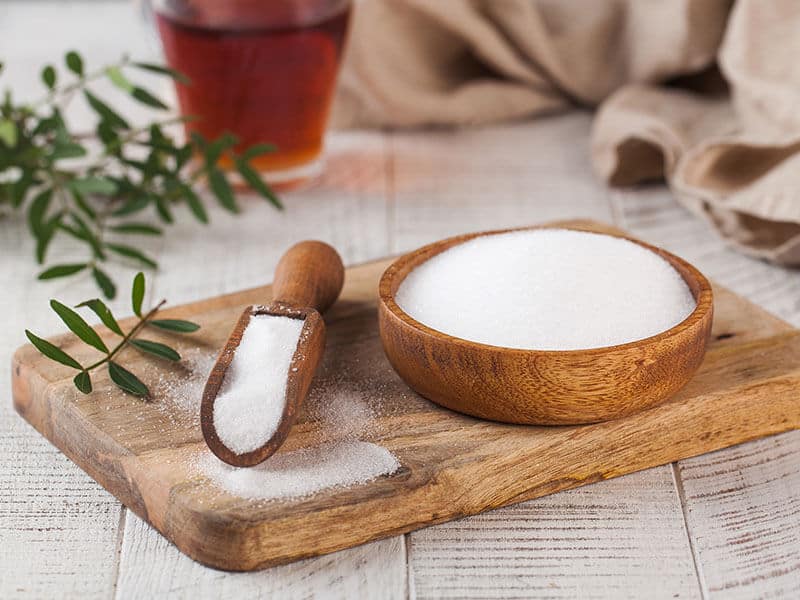
Can you imagine that there is a coconut sugar alternative that is not only healthy but also enhances your dental health, assists you in achieving weight loss objectives, and helps reduce carbohydrate consumption? Yes, I am talking about the amazing erythritol.
It is a carbohydrate-free and sugar-free sweetener derived from fermented foods. Indeed, this sugar alcohol is the safest option on my list to replace coconut sugar, especially in baked items, ice cream, candy, and gum.
One important remark when cooking with erythritol is that the sweetener melts at high temperatures but does not caramelize. Plus, its sweetness level is approximately 70% that of refined sugar, giving it a similar flavor to coconut sugar.
Thus, you can use 1 teaspoon of erythritol to replace 1 teaspoon of coconut sugar. Rest assured that your blood sugar levels are safe with this sweetener. However, consuming erythritol in high quantities may induce digestive problems such as bloating.
14. Tagatose
This white, odorless sugar named tagatose is a popular name in dairy products, fruits, and meals with a low carbohydrate content. Due to its low GI (around 3), low calories, and deep caramel taste, tagatose is an excellent alternative for coconut sugar.
Consuming tagatose regularly will populate your stomach with healthy microorganisms, providing anti-diabetic effects in individuals with type 2 diabetes.
You will find tagatose in crystalline powder form. Despite its white appearance, tagatose imparts a brown hue to every recipe when added. People prefer using it as a sweetener in confectionery, cereals, and frozen dairy products, thanks to its distinguished health benefits.
Thanks to the similar sweetness level between tagatose and coconut sugar, I advise using the comparable amount of tagatose for replacement.
15. Xylitol
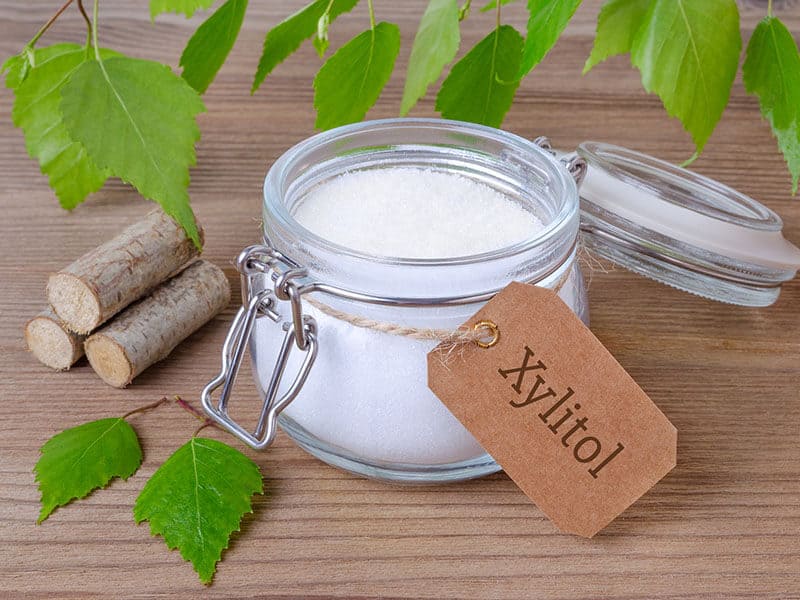
Found in trace quantities in various plants and fruits (mushrooms and strawberries being good examples), xylitol is a natural sweetener with a comparable sweet taste to sugar. Thus, use only 2/3 teaspoon of xylitol for each teaspoon of coconut sugar.
While xylitol has fewer calories than refined sugar, it does have some impact on blood sugar levels when eaten in large amounts. Yet, consuming it moderately can enhance calcium absorption and dental health.
16. Molasses
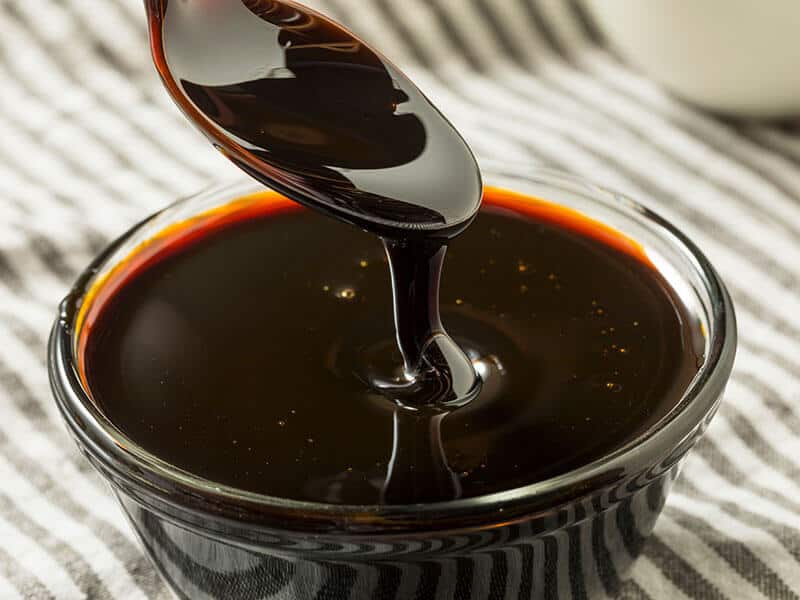
Molasses is probably the keyword of this post, as I just can’t stop mentioning it to describe the taste of other alternatives of coconut sugar. You can get this thick black syrup by boiling sugar beet or cane sugar.
There are many variations of molasses you can use, including light, dark, and blackstrap ones. Blackstrap is the most concentrated and nutrient-dense of the three. Yet, all of them contain a significant amount of calcium, which is essential for bone health.
Molasses are superior in softening cookies and enhancing the flavor of marinades and sauces. Use only 1/2 teaspoon of molasses for every teaspoon of coconut sugar to achieve the closest match of sweetness for your dishes.
Blackstrap molasses is the most concentrated and nutrient-dense among all molasses variations. Let’s refer to the following video for a quick guide of its benefits.
Enjoy Natural Sugar At Home
If you reach this stage of the article, you will know that I strongly emphasize healthy eating by recommending many natural sweeteners on my list. If there is one thing you should stay away from, it is always refined sugars found in processed goods.
Consuming nutritious fruits and veggies that contain natural sugars not only satisfies your sweet craving but also guides you on the path to becoming a healthy person.
If you need more evidence, here are some typical benefits when you replace your refined sugar consumption with more nutritious alternatives:
- Lower chance of heart disease.
- Lower in high blood pressure.
- Likely no chance of obesity.
- Better dental condition.
- Enhancing skin health.
- Reduced chance of having cancer.
Thus, when cooking, make sure to use my natural substitutes when coconut sugar is suddenly out of stock. Do not fall for the trap of refined sugar in any case!
FAQs
Before concluding my substitute list for coconut sugar, let’s have a quick look over some of the most common questions about the topic. Hopefully, you may find something useful here and there.
Which Coconut Sugar Alternative Is Getting Your Attention?
Coconut sugar substitutes can save you in various recipes throughout the globe that calls for the use of this natural sweetener. These replacements come in handy when you don’t have or don’t want to use coconut sugar yet still guarantee you a healthy diet.
While all aforementioned choices are far healthier than the standard table sugar, always use them in moderation.
Lastly, I hope my post on coconut sugar alternatives is useful. Share your words below if you know of any other creative replacements. For now, thank you for reading!
References
- Healthline, 2019. Coconut Sugar and Diabetes: Is It Safe?
- NCBI,. Coconut (Cocos nucifera L.) sap as a potential source of sugar: Antioxidant and nutritional properties

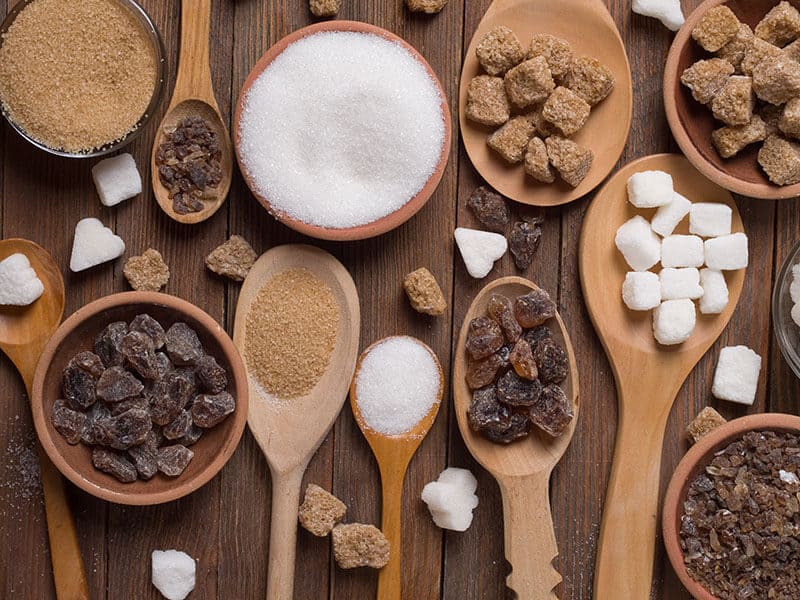

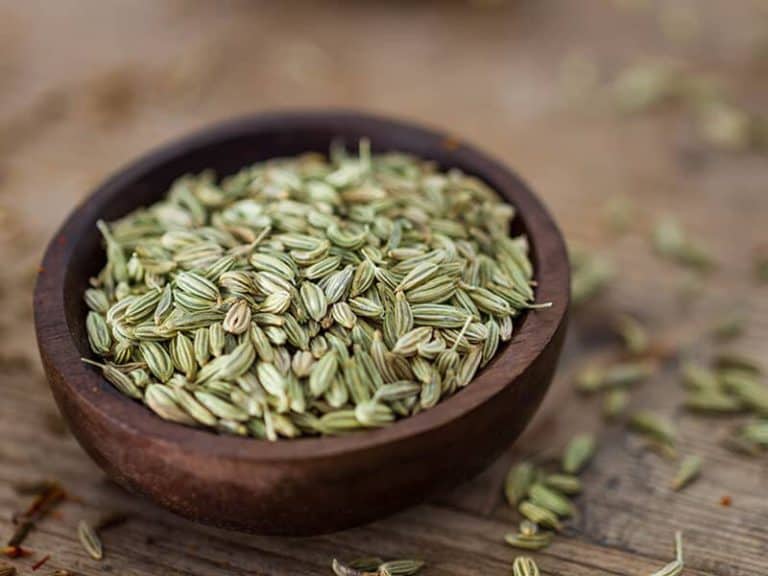
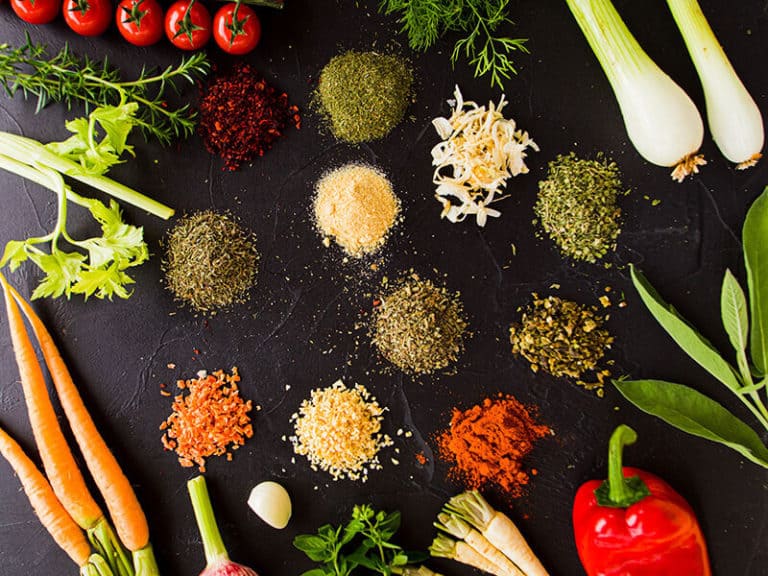
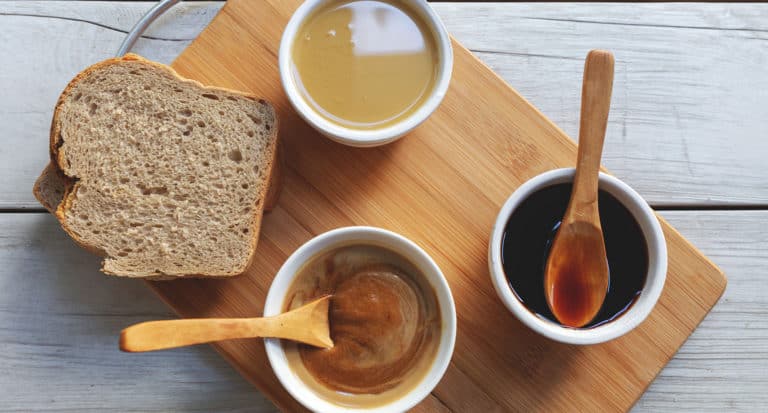
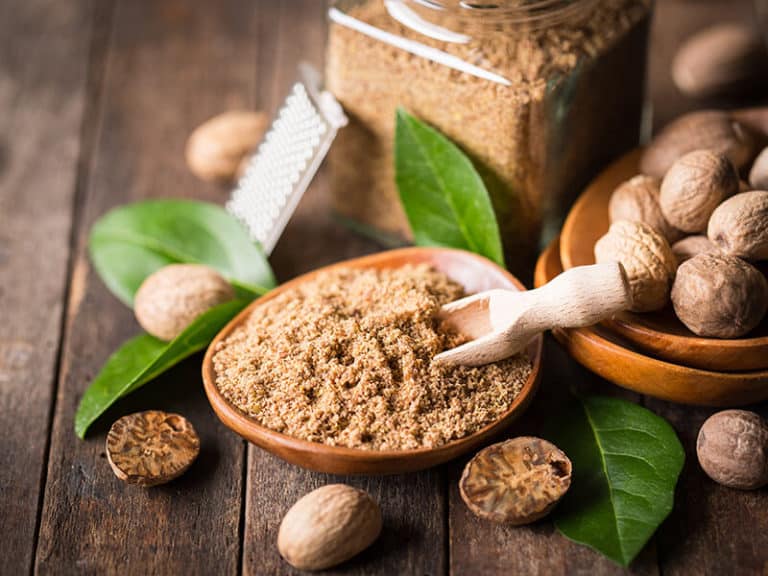
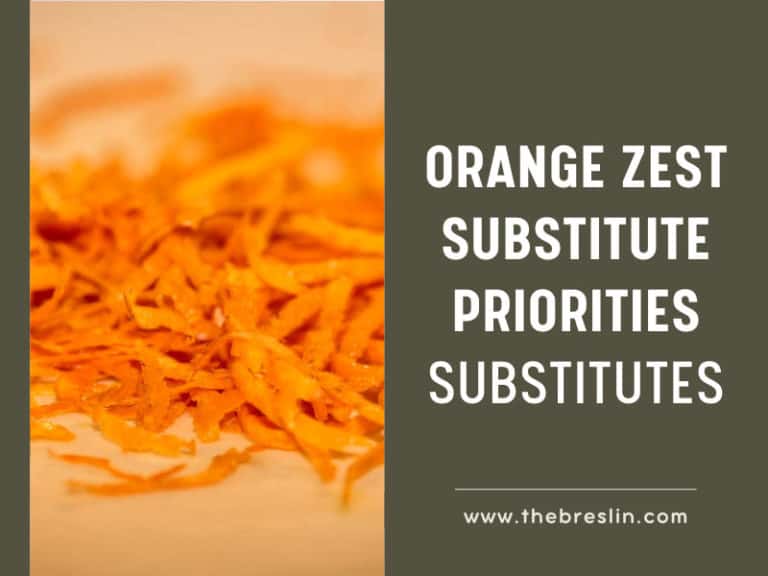
Amanda Collins
Founder and Senior Culinary Editor
Expertise
Culinary Arts and Management, Food Journalism and Critique, Recipe Development and Testing, Global Culinary Traditions, Sustainable Food Practices
Education
Institute of Culinary Education (ICE), New York, NY
Program: Diploma in Culinary Arts
Focus: Intensive hands-on training in culinary techniques, recipe development, and kitchen management, preparing students for professional roles in the culinary industry.
Monroe College, New Rochelle, NY
Program: Associate in Applied Science in Culinary Arts
Focus: Practical culinary skills, including cooking techniques, menu planning, and kitchen operations, with an emphasis on hands-on experience and industry standards.
Amanda Collins is a seasoned chef and food editor with a deep love for global flavors. Trained at the Institute of Culinary Education and Monroe College, and with over 15 years in the culinary field, Amanda has refined her skills in kitchens worldwide. Her background in food studies gives her a unique ability to share both recipes and the cultural stories that shape them.
As senior culinary editor at thebreslin.com, Amanda’s work brings authentic dishes to life, inviting readers to explore new flavors and techniques from around the globe. Her approachable style makes it easy for anyone to bring a bit of the world’s cuisine into their kitchen.